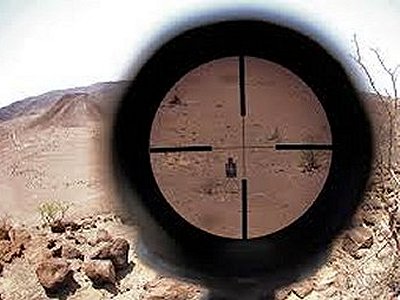
NO PLACE TO HIDE
God must work through people who possess a potent combination of free agency and moral weakness. The outcomes are sometimes unsettlingly messy.
In its ancient context, the story of David on the run from King Saul has the feel of the film The Fugitive, where Dr Kimble (played by Harrison Ford) has to prove he is innocent of murder but can only do so by evading capture. David too, having provoked the paranoid jealousy of Saul, has to elude the grasp of the State. Without food, weapons or protection, he cannot be sure in each passing town who might be relied upon to offer him refuge and who might turn him in.
In 1 Samuel 21, David arrives at a place called Nob. Homeless and hungry, he tries the local vicarage and meets Ahimelech the priest. Ahimelech betrays signs of nervousness in his encounter with David. He notices he is alone, which does not make sense because David was a member of the King’s court and should have been travelling with an entourage. Ahimelech senses danger, fearing David is asking him to swim out of his depth.
To soothe his fears, David lies to him about being on a top secret mission which no-one knows of. Reassured, Ahimelech provides him with the consecrated bread to eat. He also offers him, in a touch of ironic symbolism, the sword of Goliath which had been kept as a kind of museum piece following David’s triumph over the giant. Like with an action hero, David laying his hands on a weapon at last makes us feel he has a fighting chance to live, yet there is also something rather poignant and disappointing about the scene. David had originally taunted Goliath for his reliance on a crude weapon, when David came at him in the name of the Lord and a few small stones. David clearly felt he was in greater danger now than he had been facing Goliath; his desperation at avoiding capture prevailing over the faith he had once worn on his sleeve, leading him to make responses that would have bitter consequences.
Although David moved in a small world, his chances of detection were less than anyone trying to avoid capture today. The merest use of a credit card or the carrying of a mobile phone by a fugitive would be quickly traced; the unseen but comprehensive existence of CCTV eventually revealing whereabouts. The absence of this technology should have made it possible for David to go to ground in some cave in the mountains until his chasers grew distracted and found a more pressing target (the modus operandi of today’s terrorist) but another factor entered the equation at Nob.
Despite the resources poured into intelligence gathering, the gains are often made by chance. While David was conducting his devious transaction with Ahimelech, an Edomite called Doeg was watching; it is only recounted as an incidental detail in the narrative, but it was to have shocking consequences.
Later on we read of Saul’s worsening paranoia and his fear of a palace coup, expressed in the presence of Doeg. This was the moment for this ambitious and amoral solider to ingratiate himself with the boss. Telling Saul all about David’s encounter with Ahimelech, the priest is summoned by the King and accused of conspiracy. This was a terrifying moment for Ahimelech because David, in his desperation, had told him the lie that Saul had sent him in the first place. There is no answer Ahimelech can give to assuage the king’s fury and the ghastly order is given to kill all the local priests.
This leads to one of scripture’s most dramatic moments, when even Saul’s loyal guards flinch from the command. Unable to bring themselves to commit such an atrocity, it is left to the ruthless Doeg to carry out the king’s orders, killing eighty-five priests and then the whole town of Nob, its people and animals, in a sickening and unrestrained orgy of violence.
One white lie by David, under pressure, led to this. Once David made the transition from private shepherd boy to public political leader, his failings were projected onto a larger screen. It was an early and cruel lesson in the need for consistency and integrity in public leadership but despite David’s horror and bitter regret, it wasn’t a moral he took properly to heart as his affair with Bathsheba would reveal.
David’s kingship produced great blessings for Israel and he is remembered as its greatest king. Yet when God moves to bless his world, there is sometimes collateral damage because he must work though people who have a potent combination of free agency and moral weakness. I think we are invited by scripture to ask the specific question of why God allowed Doeg to be there at Nob in the first place. It is one of those tragic co-incidences we feel that God should take care of. And perhaps he does, from time to time, because by definition we only know of the things that happen in life, not those which don’t. So having raised the question, we are unable to answer it satisfactorily.
Yet there is one question we can answer, to our discomfort. If David had trusted God and told the truth, none of this might have happened. Confronted with evil, we usually have questions we want to ask of God; conveniently, we forget he also has some searching ones to ask of us.
POPULAR ARTICLES

Obama's Covert Wars
The use of drones is going to change warfare out of all recognition in the next decades.

Through A Glass Starkly
Images of traumatic incidents caught on mobile phone can be put to remarkable effect.

What Are British Values?
Is there a British identity and if so, what has shaped the values and institutions that form it?


